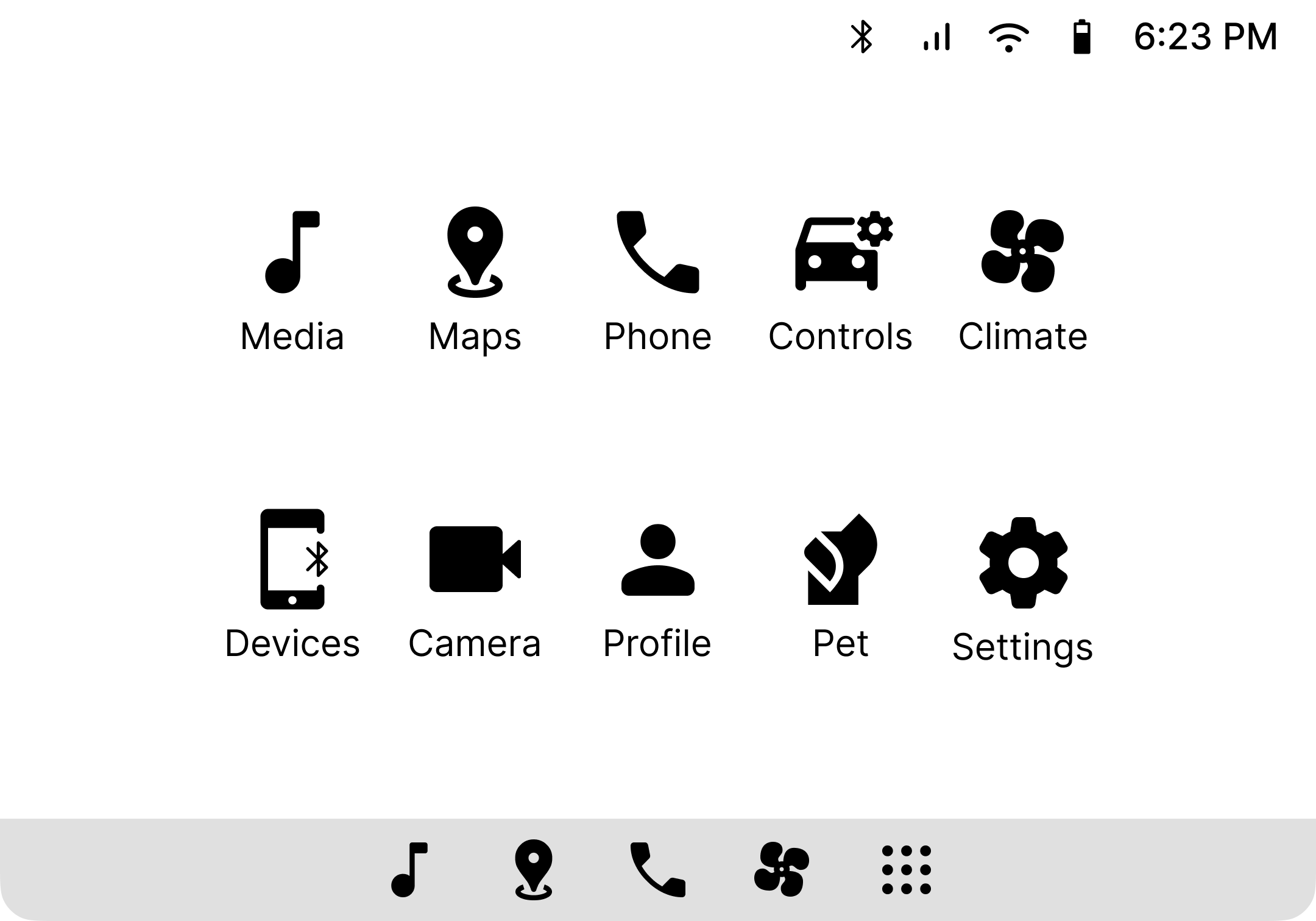
Designing an In-Vehicle Experience for the Daily Driver
For an automotive design course, student teams were tasked with designing the screens for a luxury, performance, or mass market vehicle — culminating in a project presentation to stakeholders at General Motors. Wanting to focus on a broad customer segment, my partner and I chose to design the in-vehicle displays for a mass market vehicle.
In March 2025, I revisited this project with a fresh perspective, redesigning it to enhance the user experience and elevate the overall aesthetic. Additionally, I reworked the designs for the Chevrolet Equinox to create a more polished final product.










.png)
.png)
.png)

.png)

.png)
.png)

.png)


.png)
.png)








.png)






